68혁명 50주년 : 1960년대 학생운동의 의미와 노동계급의 부활
<우리는 1968년 투쟁을 '혁명'이라고 규정하지는 않는다. 하지만, 대대적이고 급진적인 투쟁에서 노동계급이 부활했기 때문에 '미완의 혁명'이라고 의미를 부여한다.>
1960년대 말 무렵이 되자, 전후 호황이 사라지고, 자본주의 아래에서의 일상생활이 동과 서를 막론하고 가난과 위선임이 밝혀지고, 두 제국주의 블록 간 대리전쟁이 베트남에서 아프리카까지 계속됨에 따라, 부모세대가 겪었던 패배와 트라우마를 경험해 보지 못한 프롤레타리아의 새로운 세대는 자본주의 사회의 정상성에 의문을 제기하기 시작했다. 이 문제 제기는 다른 층위의 사람들에게도 영향을 미쳤고, 1968년 5~6월 프랑스에서 거대한 대중 파업으로 터져 나왔고, 이 운동은 반혁명의 시대가 끝을 고하는, 모든 대륙에서 노동자 투쟁의 국제적 물결을 알리는 신호였다. 68년 5월 프랑스, 그 운동의 정점에서 거리 곳곳, 학교, 대학, 그리고 작업장에서, 존 리드(John Reed)가 1917년 10월 이전 러시아에서 관찰했던 바와 똑같은 깊이 있는 정치적 토론의 신호를 관찰할 수 있었다. 수십 년 만에 처음으로 자본주의를 새로운 사회로 대체하자는 생각이 노동자와 학생들 가운데 중요한 소수파 사이에서 심각하게 논의되었고, 이러한 정치적 동요의 가장 중요한 열매는 혁명적 정치 조직의 새로운 세대였다.
1. 1960년대 세계학생운동의 전개과정
미국에서는 1964년부터 가장 대대적이고 가장 격렬한 운동이 전개되었다. 특히 캘리포니아의 버클리 대학에서 학생들의 항의가 최초로 대규모 확대되었다. 학생들이 주요하게 제기한 것은 대학에서 자유로운 정치적 발언을 위한 ‘자유로운 발언 운동’의 요구였다.
미군 신병모집에 항의하는 학생들은 베트남전 반대, 인종 분리 반대를 선동했다. 처음에 당국은 학생들의 평화로운 점거에 경찰력을 동원해서 억압했고, 1965년 초 대학 측은 학교 내에 경찰의 활동을 허가했으며 그로 인해 버클리 대학은 미국 학생 저항운동의 주요중심지가 되었다. 동시에 로널드 레이건이 ‘버클리에서 무질서를 일소하자’라는 구호를 내걸고 캘리포니아 주지사가 되자, 운동은 강한 자극을 받았고, 그다음 해에 인종 분리 반대, 여성권리 옹호 그리고 특히 베트남전 반대 항의시위를 벌이면서 과격화되었다.
하지만, 이러한 항의운동은 잔인하게 진압되었다. 1967년 말 952명의 학생이 베트남 신병소집을 거부했다는 이유로 장기 징역형을 선고받았고, 1968년 2월 8일 사우스 캐롤라이나에서 시민권을 위한 시위 도중 3명의 학생이 살해당했다. 운동은 1968년에 가장 강력히 확대되었다. 이러한 불만과 과격화는 4월 4일 마틴 루터 킹의 암살로 한 층 더 증폭되었는데, 이 사건은 그 나라의 흑인 게토에서 수많은 폭력충돌을 불러일으켰다. 컬럼비아대학의 점거는 미국 학생운동의 최고정점 중 하나로 다시 새로운 충돌을 불러왔다.
미국 대학생들의 반란은 같은 시기에 많은 다른 나라로 퍼졌다. 아메리카 나라들 가운데서는 브라질과 멕시코 학생들이 가장 활동적이었다. 1967년 브라질에서는 브라질 정부와 미국 정부에 반대하는 시위가 지속해서 발생했다. 당국의 엄청난 진압과 대대적인 검거에도 브라질 학생들은 1968년 10월까지 거의 날마다 시위를 벌였다.
몇 달 뒤에는 멕시코가 휩쓸렸다. 7월 말 멕시코시티에서 학생반란이 일어났다. 경찰은 탱크를 투입했다. 경찰 총수는 올림픽 대회를 명분으로 잔인한 진압을 지시했고. 9월 18일 대학캠퍼스가 경찰에 점령되었다. 마침내 10월 2일 정부는 멕시코시티의 3문화광장에서 만 명의 학생시위대에 총격을 가하도록 했는데, ‘틀라텔롤코의 학살’로 기억되는 이 진압에서 최소 200명이 살해당하고 500명 이상이 중상을 입었으며 2,000명 이상이 검거되었다. 그렇게 올림픽을 조용하게 치를 수 있었지만, 학생들은 올림픽이라는 강제된 휴식이 있은 뒤에도 몇 달 동안 투쟁을 계속해나갔다.
당시 학생 운동 물결은 아메리카에서만 일어난 게 아니라 모든 대륙을 휩쓸었다. 아시아는 일본에서 극적인 운동이 나타났다. 1963년 이래 미국과 베트남전에 반대하는 폭력시위가 발생했는데, 주로 전학련(전국일본학생자치위원회연합)이 주도했다. 1968년 봄의 끝 무렵, 이 학생운동은 수많은 학교로 퍼졌고, 노동자들이 운동에 가담한 1968년 10월에는 절정에 달했다. 반봉기법이 통과되자, 80만 명이 거리에 나와 시위를 했다. 도쿄대학 점거를 경찰이 진압하자, 학생들은 동맹휴학을 했다. 하지만 1969년 1월 중순 학생운동의 마지막 요새였던 도쿄대학이 무너졌다.
아프리카에서는 세네갈과 튀니지에서 학생들의 투쟁이 두드러지게 나타났다. 이렇게 모든 대륙을 휩쓸었던 운동은 유럽에서 가장 거대하고 극적으로 전개되었다.
영국에서는 이미 1966년 말에 런던경제학교(LSE, London School of Economics)에서 시작하여 점거 운동이 퍼져나갔고, 1967년 3월에는 5일간의 점거가 있었는데, 미국의 예를 따라 ‘자유대학’이 만들어졌다. 가장 극적인 시위는 베트남전에 반대하여 1967년 3월과 10월, 1968년 3월과 10월에 일어났는데, 모두 경찰과의 폭력적인 충돌이 있었다. 벨기에에서는 학생들이 베트남전에 반대하고 교육부문의 개선을 요구하기 위해 1968년 4월부터 수차례 거리로 나섰다. 5월 22일에는 브뤼셀 자유대학을 점거하여 ‘민중을 위해 열린 대학교’라고 선언했다.
이탈리아에서는 1967년부터 여러 대학을 점거했고, 경찰과 학생 사이에 충돌이 있었다. 프랑코 지배하의 스페인에서는 1966년부터 노동자 파업과 대학 점거의 물결이 전개되었다. 1967년에 그 운동은 더욱 강하게 성장했고 1968년까지 지속되었다. 학생과 노동자는 서로 연대를 표시했다.
당시 유럽의 모든 나라 중에서 독일의 학생운동이 가장 강력했다. 독일에서는 1966년 말, 사회민주당이 정권에 참여하는 것에 대한 반응으로 ‘의회 외부의 반대파(APO)’가 출현했다. APO는 특히 학생들의 총회에 기반을 두고 있었고, 그 회의에서는 저항의 수단과 방법에 관한 열띤 논쟁이 이루어졌다. 많은 대학에서 미국의 모범을 따라 토론그룹이 만들어졌고, 기성의 부르주아적인 것에 대한 반대로 ‘비판적 대학교’가 설립되었다. 이 시기에 논쟁의 오랜 전통, 즉 공개적인 총회에서의 토론 전통이 일부 부활했다. 비록 많은 사람들이 극적인 행동에 대한 충동에 이끌리는 것처럼 느껴졌지만, 그래도 이론과 혁명운동의 역사에 대한 관심이 출현했고, 더불어 자본주의 극복을 생각할 용기도 다시 나타났다. 독일의 저항운동은 국제적으로 ‘가장 이론적이며, 토론에 있어서 가장 깊게 파고들었고, 가장 정치적이었던’ 것으로 여겨졌다.
이러한 토론에 병행하여 수많은 항의시위가 있었다. 베트남전 문제는 확실히, 미국의 군사력을 전적으로 지지하는 정부가 있는 나라와 2차 대전의 영향이 계속 남아 있던 나라에서 주요 원동력이 되었다. 1968년 2월 17일과 18일 서베를린에서 국제 베트남 대회가 개최되었는데, 그에 뒤이어 12,000명이 참가한 시위가 있었다. 1965년 이후 시위는 모두 ‘비상사태법령’의 제정을 반대했는데, 이 법령은 독일의 내부적인 군국주의화와 진압에 대한 강화된 권리를 국가가 갖는 것이었다. 1966년 대연정에 참가한 사회민주당(SPD)은 이러한 법령을 주장하면서, 그들이 독일 프롤레타리아트에 대한 유혈진압을 지휘했던 1918~1919년과 같은 자신들의 오랜 전통을 이어갔다.
프랑스의 학생반란은 1968년 3월 22일 파리 서편 근교인 낭트에서 시작되었다. 그날의 사건은 그 자체로는 특별한 게 아니었다. 파리에서 베트남전에 반대해 많은 폭력적인 시위가 벌어졌던 시기에 낭트 대학 소속 극좌파 학생 한 명의 검거에 대항해 그의 동료 학생들이 대학위원회 건물을 점거하기로 결정했다. 대학위원회 건물을 점거한 142명은 건물을 떠나기 전에, 3월 22일 운동(M22)의 성립을 결정했다. 그것은 트로츠키주의 성향의 혁명적 공산주의 연맹(LCR)과 아나키스트들이 초기에 속해있던 비공식적 운동의 하나였다. 4월 말에는 맑스-레닌주의 공산주의 청년연합(UCJML)의 마오주의자들이 가담했다. 그에 뒤이어 대략 1,200명의 학생이 참여했다. 대학교 벽면에는 점점 더 많은 현수막과 낙서가 등장했다. ‘교수들, 너희는 낡았고 너희의 문화도 마찬가지이다’, ‘삶을 살자’, ‘너희의 꿈을 실현하라’ 등. 3월 22일 운동(M22)은 3월 29일을 ‘비판적인 대학교’의 날로 선언하면서 독일 학생운동의 전철을 밟는다.
낭트 캠퍼스에서는 극좌파 학생들과 ‘볼셰비키들을 혼내주기 위해서’ 파리에서 원정을 온 옥시당(Gruppe Occident) 그룹 소속 파시스트들 사이에 점점 더 자주 충돌이 벌어졌다. 이러한 상황에 대해 총장은 학교를 다시 폐쇄하기로 결정했고, 경찰이 학교를 봉쇄한다. 낭트 학생들은 대학 폐쇄에 반대하고 M22 구성원에 대한 대학위원회의 징계에 항의하기 위해 다음날 소르본 대학 광장에서 집회를 갖기로 한다. 그 집회에는 300명만이 참가했지만, 학생 시위가 끝나기를 바라던 정부는 경찰에 라탱지구(파리의 대학가)를 점령하고 소르본을 포위하도록 명령했다. 경찰이 수백 년 이래 처음으로 소르본 대학에 난입했다. 자유로운 귀가를 약속했던 경찰은 남학생들을 연행했다. 이에 분노한 수백 명의 학생들이 소르본 광장에 모여 경찰과 충돌했다. 경찰의 진압이 강압적일수록 점점 더 많은 학생들이 그들을 포위하기 시작했다. 충돌은 그날 저녁 4시간 동안 지속되었다. 그다음 날 경찰은 소르본 일대를 완전히 봉쇄했다. 하지만 정부의 단호한 진압은 정반대의 결과를 초래했다. 시위를 끝내기는커녕 점점 더 대대적으로 확산되어갔다. 4만5천 명의 학생이 ‘소르본은 학생들의 것이다’, ‘경찰은 라탱지구에서 물러나라’, ‘우리의 동지를 석방하라’라는 투쟁구호를 외치며 시위에 참여했다. 시위대에 점점 더 많은 학생, 선생, 노동자, 실업자가 동참했다.
5월 7일 시위행렬은 센강을 건너 샹젤리제를 따라 이동했고 대통령궁 근처까지 나아갔다. 평소에 라 마르세예즈나 장례의 조종이 들리던 개선문 아래에서는 인터내셔널가가 불리기 시작했다. 몇몇 지방 도시에서도 시위가 번져나갔다. 정부는 자신들의 이미지 쇄신을 위해 5월 10일 낭트 대학을 개방했지만, 그날 저녁 만 명의 시위대는 라탱지구에 모여 소르본을 봉쇄했던 경찰과 대치했다. 몇몇 시위대가 바리케이트를 치기 시작했고, 새벽 2시에 CRS(경찰기동대)는 최루탄을 발사하며 바리케이트를 향해 돌격했다. 그 충돌은 매우 폭력적이어서 양측에서 수백 명이 부상당했다. 시위대 중 500명 이상이 체포되었다. 라탱지구에서는 많은 주민이 학생들에게 호의적이어서 경찰의 공격으로부터 학생들을 보호하기 위해 자기 집으로 피신하게 하거나 거리에 물을 뿌려주었다. 이 모든 사건들, 특히 진압세력의 잔인성에 관한 보도는 사람들을 자극했다. 5월 11일 파리와 프랑스 전역에서 분노가 거세졌다. 곳곳에서 사람들이 자발적으로 시위에 참여했다. 이러한 시위에는 학생뿐만 아니라 다양한 직업의 수십만의 시위자들, 특히 젊은 노동자와 학부모가 참여했다. 지방에서도 많은 대학을 점거했고, 곳곳에서 거리에서, 광장에서 사람들은 토론하기 시작했고 진압세력의 만행을 비난했다.
시위의 전개는 이제 극좌파 학생들을 비난했었던 CGT를 포함한 노동조합 중앙조직과 몇몇 경찰노동조합까지 강경 진압과 정부 정책에 항의하기 위한 5월 13일의 파업을 주장하기에 이르렀다. 5월 13일 전국의 모든 도시에서 2차 세계대전 이래 최대 규모의 시위가 일어났다. 노동계급은 학생들 곁에서 대대적으로 참가했다. 가장 널리 확산된 구호 중 하나가, ‘10년(드골이 권력을 잡은 기간), 그것으로 충분하다.’ 이었다. 시위의 결과는 거의 모든 대학을 학생뿐만 아니라 수많은 젊은 노동자들이 점거한 것이었다. 여러 곳에서 사람들이 발언을 했고, 토론은 대학 관련 문제나 진압에 관한 것에 한정되지 않았다. 노동조건, 착취, 사회의 미래 등 가능한 모든 사회문제를 다루기 시작했다. 토론은 많은 직장에서 계속 진행되었고 노동자들은 자발적인 파업에 들어갔고 작업장을 점거하기로 했다. 특히 젊은 노동자들이 운동을 추진했다. 드디어 노동계급이 다시 계급투쟁의 무대에 등장한 것이다.
2. 1960년대 학생운동의 의미
1960년대 학생운동의 특징은 전반적으로 베트남전쟁 반대에 있었다. 이 운동은 1950년대 초 한국전쟁 동안의 반전운동처럼 소련-스탈린주의 당과 연계된 운동이 주도권을 쥘 거라는 예상과 달리 그들은 사실상 어떤 영향력도 발휘하지 못했고, 오히려 자주 그 운동과 대립했다. 이것이 1960년대 말 학생운동의 특징 중의 하나였다.
베트남전에 반대한 미국에서의 저항이 서방 세계 모든 나라에서 가장 중요하고 널리 확산된 동인이었다면, 학생반란이 주요한 나라들에서 일어난 건 확실히 우연이 아니었다. 미국의 젊은 세대는 징집으로 인해 전쟁문제와 직접 대면했다. 베트남전에서 미국의 젊은이들은 수만 명이 목숨을 잃었고, 수십만 명이 부상당해 돌아왔으며, 수백만 명은 그곳에서 겪은 경험으로 평생 후유증을 앓았다. 그들이 현지에서 경험한 공포를 제외하더라도, 많은 이들은 다음과 같은 질문에 직면했다. 우리가 베트남에서 도대체 뭘 하고 있는가? 공식적으로 그들은 ‘민주주의’, ‘자유 세계’ 그리고 ‘문명’을 수호하기 위해 그곳에 파견되었지만, 그들이 현지에서 경험한 건 공식적인 것과 완전히 모순되었다. 그들이 이른바 방어해야 할 정권, 즉 사이공의 정부는 민주적이지도 문명적이지도 않았다. 그 정권은 군사독재로서 부정부패가 극에 달해 있었다. 현지에서 병사들은, 비무장의 가난한 농민, 여성 그리고 아이와 노인에게까지 폭력을 가하고 살해하도록 요구하는 현실에서, 자신들이 ‘문명’을 수호한다는 걸 이해할 수가 없었다. 미국 정부가 제시하는 ‘문명과 민주주의의 수호’라는 공식적인 말과 베트남에서 실제 행동 사이의 엄청난 모순은 미국 부르주아지의 권위와 전통적인 가치에 반대하는 반란을 일으킨 가장 중요한 요소 중 하나였다. 이러한 반란은 처음에는 히피 운동과 함께 비폭력적이고 평화주의 운동의 하나였다. 그러나 1968년 프랑스에서와같이 버클리에서의 진압은 그 운동이 과격화되는 중요한 요소가 되었다. 비폭력운동에 잠시 함께했던 제리 루빈(Jerry Rubin)이 국제청년당(Youth International Party)을 창립한 이후, 반란운동은 자본주의에 대항한 일종의 혁명적인 전망을 스스로 부여했다. 이제 운동의 새로운 영웅들은 더 이상 밥 딜런이나 조안 배스가 아니라, 체 게바라와 같은 사람이었다. 이 운동의 이데올로기는 믿을 수 없을 정도로 뒤죽박죽이었다. 여기에는(자유 숭배, 특히 섹스의 자유나 마약 소비의 자유와 같은) 아나키스트적인 면이 있었을 뿐만 아니라, (쿠바와 알바니아를 모범으로 찬양하는) 스탈린주의적인 면도 있었다.
결론적으로, 1960년대 미국에서 확산된 저항운동의 주요 특징은 베트남전에 반대했을 뿐만 아니라 인종차별에도 반대했으며, 성차별에도 반대하고, 미국의 전통적인 도덕과 가치에 반대했다. 이 운동은 결코 노동계급의 운동이 아니었다. 자본주의에 대항한 혁명적 세력은 노동계급이 아니라 다른 사회계층, 즉 인종차별의 희생자인 흑인, 제3 세계의 농민, 반항하는 지식인이었다.
미국뿐 아니라 유럽 대부분의 나라에서도 1960년대 학생운동은 유사한 모습을 보였다. 미국이 베트남에 관여하는 것에 대한 비난, 권위(특히 대학의 권위)에 대한 거부, 권위주의 일반에 대한 거부, 전통적인 도덕(특히 성도덕)에 대한 반란 등이 그것이다. 이것이 바로 권위주의의 상징이었던 스탈린주의 당들이 비록 미국의 베트남 개입을 강력히 비판했음에도 불구하고 반란자들 사이에서 전혀 반향을 얻을 수 없었던 이유였다. 하지만, 1960년대의 반란자들은 호치민(오랜 당원이었지만 훨씬 더 모범적이었고 영웅적인 것처럼 보였던)의 포스터를 걸어놓기를 더 좋아했고, 체 게바라(마찬가지로 스탈린주의 당의 당원이었지만 이국적으로 여겨졌다)나 안젤라 데이비스(미국 스탈린주의 당의 당원이었지만 흑인 여성이라는 이미지와 체 게바라와 같이 낭만적인 외모로 인해)의 낭만적인 사진을 걸어두기를 가장 좋아했다.
베트남전에 반대할 뿐만 아니라 자유스러워 보이는 이러한 현상은 독일에도 나타났다. 1965년 이래 독일의 대학에서 전개된 토론 과정에서 ‘반권위주의적인 진정한 맑스주의’에 대한 모색이 큰 성공을 거두었다. 그 당시 평의회주의 운동의 많은 글이 다시 회람되었다.
프랑스에서 1968년 전개된 학생운동의 주제와 요구도 근본적으로는 동일했다. 그 과정에서 베트남전에 반대했던 저항은 상황주의적이거나 아나키스트적인 일련의 슬로건에 밀리게 되었다.
특히 아나키스트적인 영감은 아래와 같은 슬로건으로 표현되었다.
“금지하는 것은 금지되어 있다“
“자유는 모든 범죄를 포함하는 범죄이다“
“선거는 어리석은 자들을 위한 함정이다“
“불손하고 파렴치하다는 것은 새로운 혁명 무기이다“
상황주의의 영향은 이렇게 반영되었다.
“소비사회 타도”
“볼거리의 상품사회 타도“
“소외를 타도하자“
“절대로 일하지 말라“
“지루함은 반혁명적이다“
“현실적으로 되자, 비현실적인 것을 요구하자“
다른 세대에 대한 표현은 이러했다.
“달려라 동지, 낡은 세계가 네 뒤에 있다“
“젊은이들은 섹스를 하고, 늙은이들은 음란한 몸짓을 한다“
바리케이트가 세워졌던 68년 5월 프랑스에서는 다음과 같은 슬로건이 나왔다.
“바리케이트는 거리를 차단하지만 길을 연다“
“모든 생각의 결론은 경찰의 주둥이에 짱돌을 처넣는 것이다”
이시기의 가장 큰 혼란은, 다음의 두 가지 슬로건으로 표현되었다.
“혁명적인 사고란 없다. 오직 혁명적인 행동만이 있을 뿐이다“
“나는 할 말이 있지만, 그것이 무언지 모른다“
이러한 슬로건이 다른 나라에서 유포된 대부분의 슬로건과 마찬가지로 분명히 보여주는 건 1960년대 학생운동은 비록 여러 나라에서 노동자 투쟁으로의 가교를 만들려는 의지가 있었을지라도, 노동계급의 본질을 반영한 게 아니라는 점이다. 또한, 이러한 접근방식은 잘 못 이해한 맑스주의 고전 문서에서 영웅이었던 육체노동자에 대한 매혹과 뒤섞여 노동계급에 대한 오만을 반영했다.
1960년대 학생운동의 성격은 쁘띠부르주아적 이었다. 아나키스트적인 표현 이외에 가장 분명한 것은 삶을 즉시 변혁하려는 의지였다. 이러한 조급함과 ‘모든 것을 지금 당장’이라는 주장은 쁘띠부르주아의 계급적 특징이다. 이 운동 지도부의 혁명적인 과격주의 그리고 운동 일부의 폭력 미화는 쁘띠부르주아적인 본질을 반영한 것이었다. 1968년 학생들의 혁명적 관심사는 의심의 여지 없이 옳았지만, 운동은 혁명을 일으키는 노동계급 운동의 실질적인 발전에 대해서는 조금도 생각하지 않은 채, 혁명에 관한 낭만적인 관점만을 갖고 있었다. 스스로 혁명적이라고 여겼던 프랑스의 학생들은 68년 5월 운동이 이미 혁명이었다고 믿었고, 날마다 세웠던 바리케이트를 1848년과 1871년 코뮨의(바리케이트) 유산으로 묘사했다.
1960년대 말 학생운동의 특징 중 또 하나는 세대 간의 갈등 즉 새로운 세대와 그들이 비난하는 부모세대 사이에 존재한 아주 큰 간극이었다. 특히 부모세대는 제1차 세계대전이 초래한 가난과 굶주림을 극복하기 위해 힘들게 일해야 했다는 이유로 오로지 물질적인 번영에만 신경을 썼다고 비난받았다. 그래서 소비사회에 관한 환상과 ‘절대로 일하지 말라’와 같은 슬로건이 성공을 거두었다. 반혁명을 철저히 경험한 세대의 자녀들로서 1960년대 젊은이들은 자신들의 부모가 자본주의의 요구에 무릎을 꿇고 순응했다고 비난했다. 반면 많은 부모들은 자신들이 경험한 것보다는 더 나은 경제적 조건을 자녀에게 안겨주려고 치를 수밖에 없었던 희생에 대해 자녀들이 경멸하는 걸 이해하지 못했고 받아들이기도 힘들어했다.
하지만, 1960년대 학생반란에는 진정한 경제적인 요인이 있었다. 오늘날의 상황과 비교할 때, 당시에는 대학 졸업 후 실업으로 인한 또는 불안정한 노동조건으로 인한 큰 위협은 존재하지 않았다. 당시 대학생들의 주요한 근심은, 자신들이 그 이전 세대의 대학졸업자와 같이 동일한 사회적인 지위 상승을 더는 이룰 수 없을 거라는 점이었다. 1968년 세대는 이른바 ‘사무관리직 인력의 프롤레타리아화’ 현상에 직면한 최초의 세대였다. 이 현상은 학생 수가 현저히 늘어나자마자 위기가 공공연하게 시작했다. 이러한 증가는 경제의 필요에 부응한 것이긴 했지만, 또한 그 부모들이 자신의 경우보다는 더 나은 경제적 사회적 처지를 자녀들에게 부여하려는 의지와 능력에도 부합했다. 특히 학생 수의 대규모 증가는 불편의 증대를 초래했다. 이는 대학의 구조와 관행이 단지 엘리트들만이 대학을 다닐 수 있었고, 강한 권위주의적 구조가 지배했던 시대의 소산으로서 그대로 존속했기 때문이었다.
1964년에 시작된 학생운동이 자본주의의 번영 시대에 전개되었던 반면, 경제적 상황이 벌써 매우 심각하게 악화되었고 그래서 학생들의 불편도 더 커졌던 1967년의 상황은 이미 달라 보였다. 이것이 바로, 그 운동이 1968년에 그 절정을 경험하게 되는 이유 중 하나였다. 그리고 이것은 또한, 왜 1968년 5월에 노동계급이 무대 위에 등장하여 운동을 이끌어나가게 되는지를 설명한다.
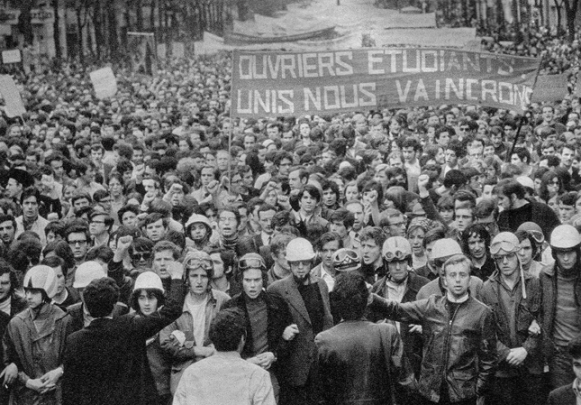
3. 1968년 5월 노동계급의 부활
낭트에서는 학생 또래의 노동자들이 운동에 동참했다. 그들의 논거는 단순하면서도 명료했다. ‘학생들이 결코 파업을 통해서 압력을 가할 수 없음에도 정부를 강제하여 승복하도록 할 힘을 가지고 있다면, 노동자들도 정부를 승복하게 만들 수 있다.’ 낭트의 학생들도 노동자들과의 연대를 선언하고, 노동자들의 파업에 연대했다.
5월 14일 저녁 총 3,100명의 노동자가 파업을 했다. 5월 15일에는 노르망디의 클레옹에 있는 르노 작업장과 다른 작업장으로 운동이 확산되어 총파업과 무기한 공장점거가 이루어졌고 공장 정문에는 붉은 깃발이 내걸렸다. 저녁 무렵에는 파업노동자가 11,000명에 달했다. 5월 17일에는 총 215,000명이 파업에 참여했다. 파업 물결은 이제 프랑스 전역, 특히 프로방스에 도달했다. 그것은 전적으로 자생적인 운동이었고 노조들은 그 꽁무니를 뒤따랐다. 모든 지역에서 젊은 노동자들이 선두에 섰다. 빈번하게 학생들과 젊은 노동자들이 연대했다. 젊은 노동자들은 학생들이 점거한 대학교로 가서 학생들에게 자신들의 공장 구내식당에 식사하러 오라고 권했다.
5월 18일 정오에 CGT의 파업호소가 알려지기 전에 이미 100만 명의 노동자들이 파업에 동참하고 있었다. 그 날 저녁에는 200만 명이 파업에 참여했다. 5월 20일에는 6백만 명이, 5월 21일에는 6백50만 명이 작업을 멈추었다. 5월 22일에는 8백만 명이 무기한 파업에 참여했다. 그것은 국제 노동운동 사상 최대의 파업이었다. 이 파업에는 모든 부문이 포함되었다. 산업, 운송 및 교통, 에너지, 우편 및 텔레커뮤니케이션, 교육, 행정(정부의 여러 기관들이 완전히 마비되었다), 언론매체(국영 텔레비전이 파업을 했고, 종사자들은 특히, 강요된 검열을 비판했다), 연구소 등등. 그리고 장례사업장마저도 파업을 했고, 심지어는 프로 스포츠 선수도 그 운동에 동참했다. 프랑스 축구협회 건물에 붉은 깃발이 나부꼈다. 예술가도 참여해서 칸 영화제가 감독들의 권유로 중단되었다.
이 시기에, 점거된 대학은(파리의 오데옹극장과 같은 다른 공공건물들과 마찬가지로) 끊임없는 정치적 논쟁 공간이 되었다. 많은 노동자들, 특히 젊은 노동자들이 이러한 토론에 참여했다. 노동자들은 혁명의 필요성을 옹호하는 사람들에게 점거한 공장을 방문해서 그들의 입장을 대변해 달라고 요청했다. 마찬가지로 거리에서도 보도에서도 많은 토론이 이루어졌다. (68년 5월에는 날씨마저 매우 좋았다). 토론은 매우 즉흥적으로 생겨났다. ‘다른 사람의 말을 경청하고 서로 대화를 나눈다’ 가 슬로건이었다. 곳곳에서 축제 분위기가 지배했지만, 예외적으로 부유층 구역에서는 공포와 증오가 쌓여갔다. 프랑스 전역에서 도시구역에서, 몇몇 큰 작업장이나 인근 구역에서 행동위원회가 출현했다. 그곳에서는 어떻게 투쟁해야 할지, 혁명적 전망이 어떻게 표현될 수 있을지에 대해 토론했다.
이러한 상황에 지배계급은 방황하게 되었고, 이는 혼란스럽고 효과적이지 않은 발의를 통해 나타났다. 우파가 지배하는 의회는 좌파가 2주 전에 제시한 검열안을 토론한 후 거부했다. 프랑스 공화국의 공식적인 제도권들은 딴 세상에 사는 것처럼 보였다. 정부도 마찬가지여서 같은 날, 독일로 출국했던 다니엘 콘벤디트의 재입국을 금지하기로 했다. 이 결정은 한층 더 불만을 들끓게 했다. 5월 24일 이에 항의하기 위해 더 많은 시위가 있었고, 많은 젊은 노동자들이 시위에 합류했다. 이날 저녁 드골 대통령은 담화문을 발표했다. 그는 국민투표를 제안했다. 상황을 그보다 더 잘못 파악할 수는 없었다. 이 담화문은 소귀에 경 읽기였고, 정부와 부르주아지의 전반적인 혼란스러움을 나타냈다.
거리에서 시위대는 담화문을 라디오를 통해서 들었고, 즉시 분노가 더 고조되었다. 파리 시내 전체에 그리고 몇몇 지방 도시에서 폭력적인 충돌이 일어났고 바리케이트가 세워졌다. 수많은 쇼윈도가 깨졌고 자동차가 불탔다. 이 때문에 여론의 일부가 학생들에게 등을 돌렸는데, 이들은 이제 폭도로 비춰졌다. 시위대 중에 드골주의 민병대원이나 경찰이 섞여 있었으나, 많은 학생들은 바리케이트를 세우거나 소비사회의 상징인 자동차를 불태움으로써 자신들이 혁명을 만들 거라고 믿었던 것은 분명했다. 이러한 행위는 특히, 역사상 최대의 파업 물결에 대한 당국의 한심스럽고 도발적인 반응에 대해 시위대, 학생들, 젊은 노동자들이 갖는 분노를 드러냈다. 체제에 대한 이러한 분노의 표현으로 자본주의의 상징인 파리 주식거래소가 화염에 휩싸였다.
결국 부르주아지는 그다음 날에야 효과적인 대책을 마련했다. 토요일인 5월 25일에 노동부에서 노동조합, 고용주들 그리고 정부 사이의 협상이 시작되었다. 처음부터 고용주들은 노동조합이 기대했던 것 이상을 제공할 용의가 있었다. 부르주아지가 겁에 질려 있는 건 명백했다. 5월 26일 밤 그르넬협정이 체결되었다. 하지만 협정은 이 운동의 강력함에 비해 한참 미치지 못하는 도발에 지나지 않았다. 5월 27일 총회는 그르넬협정을 만장일치로 거부했다. 이 협정을 거부한 가장 좋은 증거는 5월 27일 파업자 수가 9백만으로 증가한 것이었다.
5월 28일은 좌파당의 작전과 조치가 있는 날이었다. 아침에 ‘좌파 민주주의자 및 사회주의자 연합’(사회당, 과격당 그리고 서로 다른 작은 좌파그룹을 대표하는)의 총수 프랑스와 미테랑이 기자회견을 열었다. 그가 보기에 권력의 진공상태가 존재하며, 그래서 자신이 공화국 대통령 후보로 출마하겠다고 선언했다. 오후에는 CPF의 지도자 발덱-로쉐는 공산주의자들의 참여를 포함하는 정부를 제안했다. 사회민주주의자들이 혼자서 그 상황을 자신에게 유리한 쪽으로 이용하는 것을 막는 것이 관건이었다. 5월 29일에 큰 시위가 있었는데, CGT가 그것을 주관하고 국민정부를 요구했다. 우파들은 즉시 공산주의의 음모에 대해 경고했다.
이날 드골 장군이 사라졌다. 그가 퇴위할 거라는 소문이 떠돌았지만, 사실 그는 독일로 날아가서 그곳 프랑스 점령군을 지휘하고 있던 마수(Massus) 장군의 지지와 군대의 충성을 확실히 하려 했다. 5월 30일은 부르주아지가 상황의 주도권을 다시 장악하려는 시도에서 결정적인 날이었다. 드골은 다시 담화문을 발표했다. ‘지금 상황에서 나는 결코 물러나지 않겠다(……) 나는 오늘 국회를 해산한다. ……’
동시에 파리의 샹젤리제 거리에서 드골을 지지하는 엄청난 규모의 시위가 있었다. 부유층 구역에서, 잘 사는 교외 지역에서, 그리고 시골에서 군용트럭으로 ‘국민’이 운송되어 왔다. 겁먹은 자들과 가진 자들, 서민들, 부유층 자제들을 위한 지역 학교 대리자들, 자신들의 우월함을 의식하고 있는 지도층들, 쇼윈도가 파괴될까 조바심내는 작은 상점 주인들이 모두 한곳에 모였다. 국기에 대한 공격 때문에 격노한 참전용사들, 은폐물 아래서 지하 세계와 더불어 잠복하는 비밀경찰들 그리고 알제리 정착민들, 파시스트적인 옥시당 그룹의 젊은 회원들인 OAS와 비시(Vichy)에 향수를 느끼는 늙은 추종자들이(이 모두는 드골을 경멸하지만) 함께 모였다. 이 모든 사람들이 노동계급에 대한 자신들의 증오와 ‘질서 사랑’을 알리기 위해서 모여들었다.
그 목요일부터 조업이 재개되긴 했지만, 이것은 느리게 이루어졌다. 왜냐하면 6월 6일에도 여전히 약 6백만 명이 파업을 진행하고 있었기 때문이다. 조업은 매우 분산적으로 재개되었다. 6월 10일 플랭스의 르노 작업장을 경찰이 점령했다. 경찰에게 폭행을 당한 고등학생 중의 한 명이 센강에 추락해서 익사했다. 6월 11일에는 소쇼의 푸조 작업장에 CRS가 개입해 2명의 노동자가 살해했다. 이 사건으로 프랑스 전역에 다시 한번 엄청난 시위가 발생했다. ‘그들이 우리 동지들을 살해했다’며 노동자들의 결연한 저항에도 불구하고 CRS는 소쇼 작업장을 정리했다. 하지만 조업은 그 후 10일이 지나서야 재개되었다.
그러한 분노가 다시 파업의 부활(아직 3백만이 여전히 파업 중이었다)로 이어질지 모른다는 두려움 때문에 CGT를 그 선두로 한 노동조합과 CPF를 선두로 한 좌파정당은 선거가 실시될 수 있고, 노동계급의 승리를 위해서 조업이 재개되어야 한다고 강력하게 주장했다. 노동조합에 의해 5월 20일에 체계적으로 이루어진 파업 호소는 다음과 같이 설명할 수 있다. ‘그들은 운동을 통제해서 덜 전투적인 부분에서 조업 재개를 손쉽게 이뤄낼 수 있도록 했고, 다른 부문으로 그러한 사기저하를 확산시킬 수 있도록 만들길 원했다’ 발덱-로쉐는 선거운동 동안 자신의 연설에서, ‘공산당은 질서의 당’이라고 선언했다. 사실상 부르주아적인 질서가 서서히 회복되었다. 6월 30일 결선투표에서는 우파의 역사적인 승리가 있었다.
마지막으로 라디오 및 TV 방송국이 7월 12일에 업무를 재개했다. 업무가 재개된 후 많은 이들이 해고당했다. 곳곳에서 질서가 다시 회복되었고, 특히 국민을 설득하는데 중요한 언론매체에도 마찬가지였다. 그렇게 역사상 가장 큰 파업은 CGT와 CPF의 주장과는 반대로 패배로 끝났다. 그 심각한 패배는 그 운동 동안 분노와 경멸을 샀던 당과 권위의 복귀로 확실히 증명되었다. 그러나 직접적인 패배와는 상관없이 1968년 프랑스의 노동자들은 그들 자신뿐만 아니라 전 세계 프롤레타리아트를 위해서도 커다란 승리를 거두었다. 반혁명의 시대, 기나긴 암흑의 침체기를 거쳐 1968년 드디어 노동계급이 역사의 무대에 다시 등장한 것이다.
원문 ㅣ국제코뮤니스트흐름
정리 ㅣ국제코뮤니스트전망
<원문 출처> http://en.internationalism.org/international-review/201804/15127/fifty-years-ago-may-68
*68 투쟁 50주년을 맞아 ICC(국제코뮤니스트흐름)에서는 팸플릿을 발행했다. 「코뮤니스트」에서는 토론과 함께 다음 호에 한국어 번역본을 실을 예정이다. 이 글은 토론의 연속성을 위해 ICC의 문제의식을 담은 글을 재구성한 것이다.
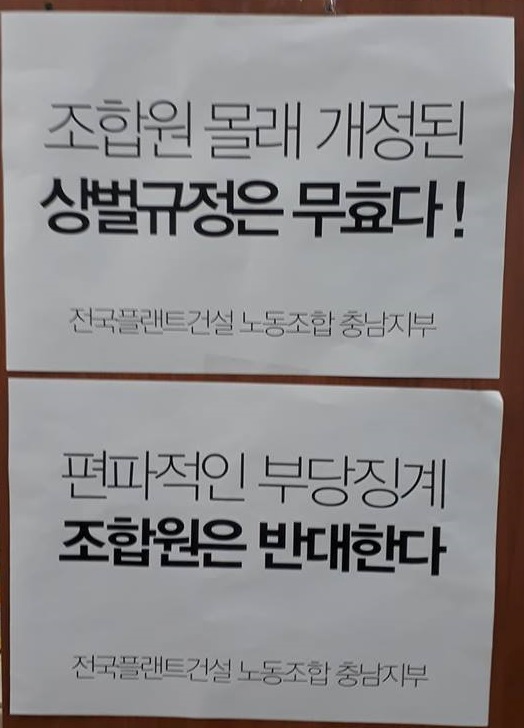




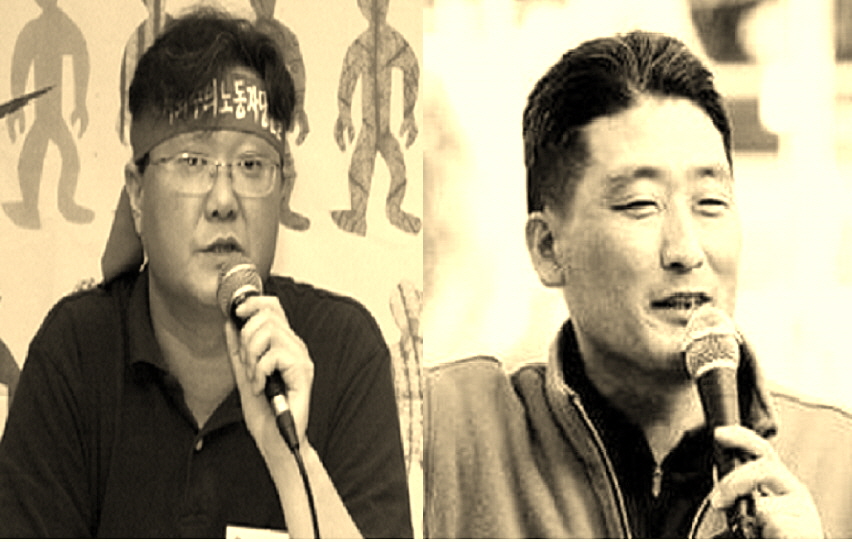



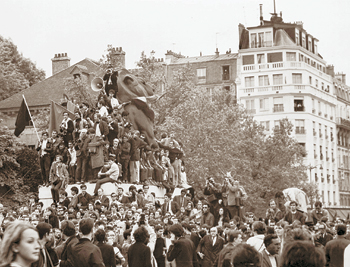

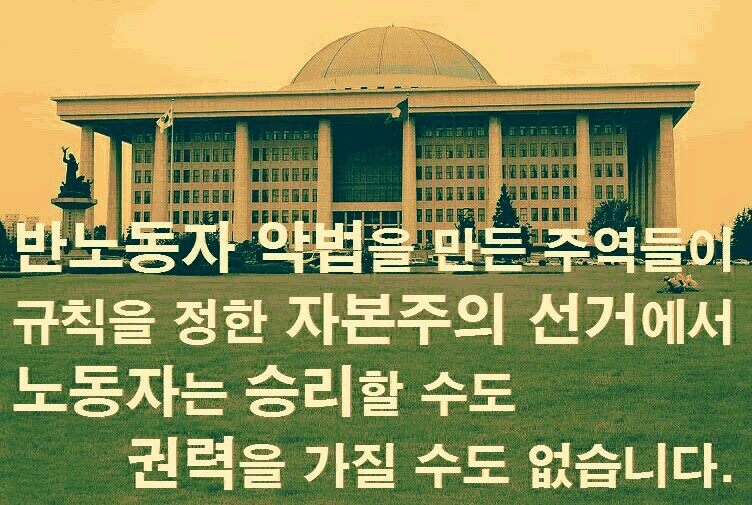
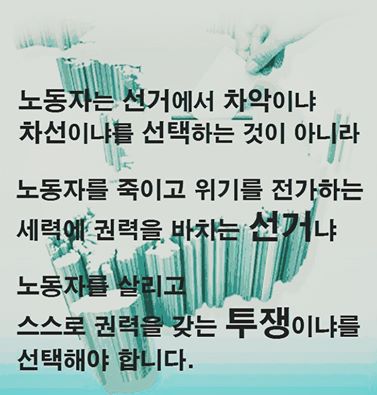
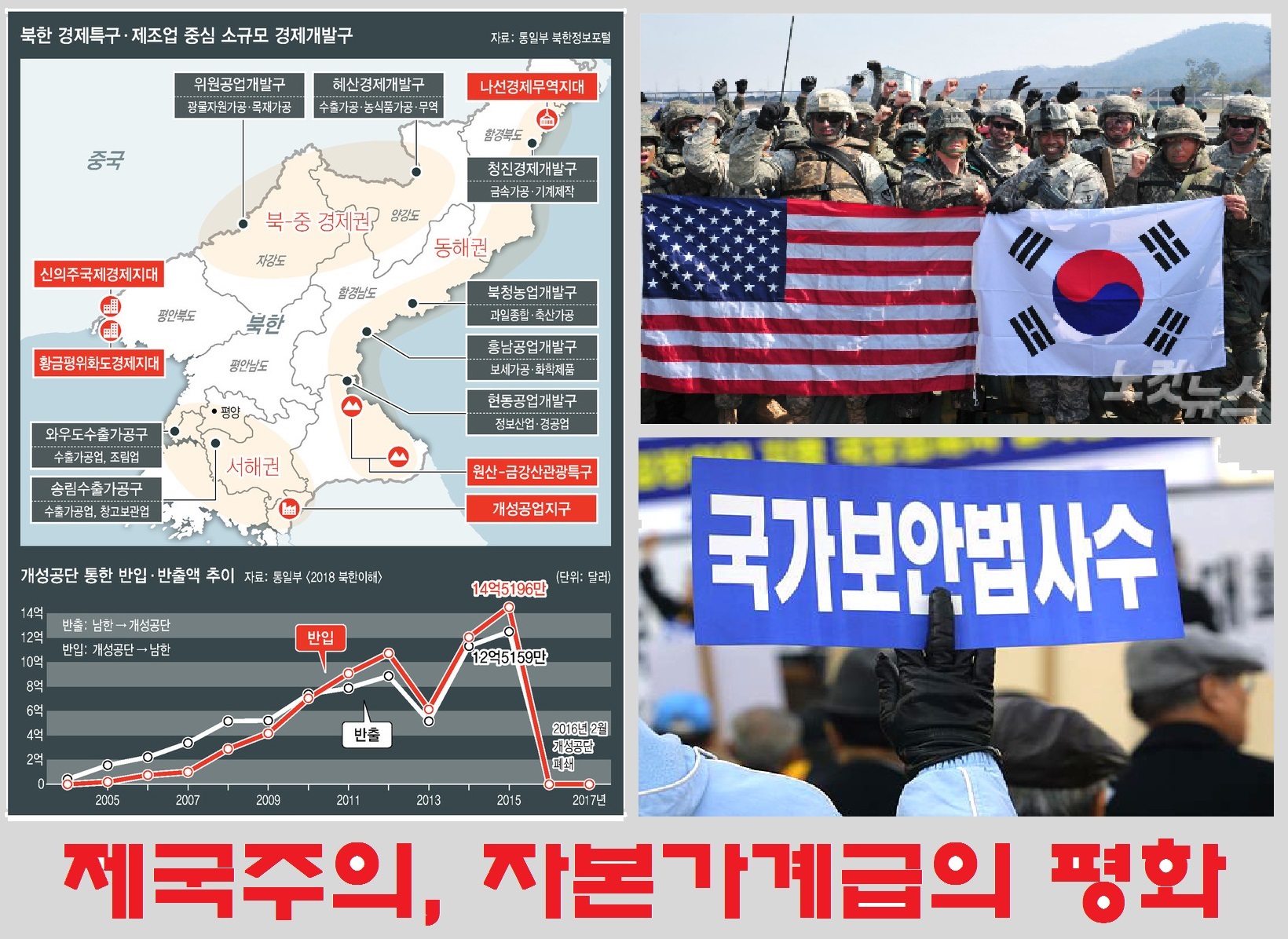
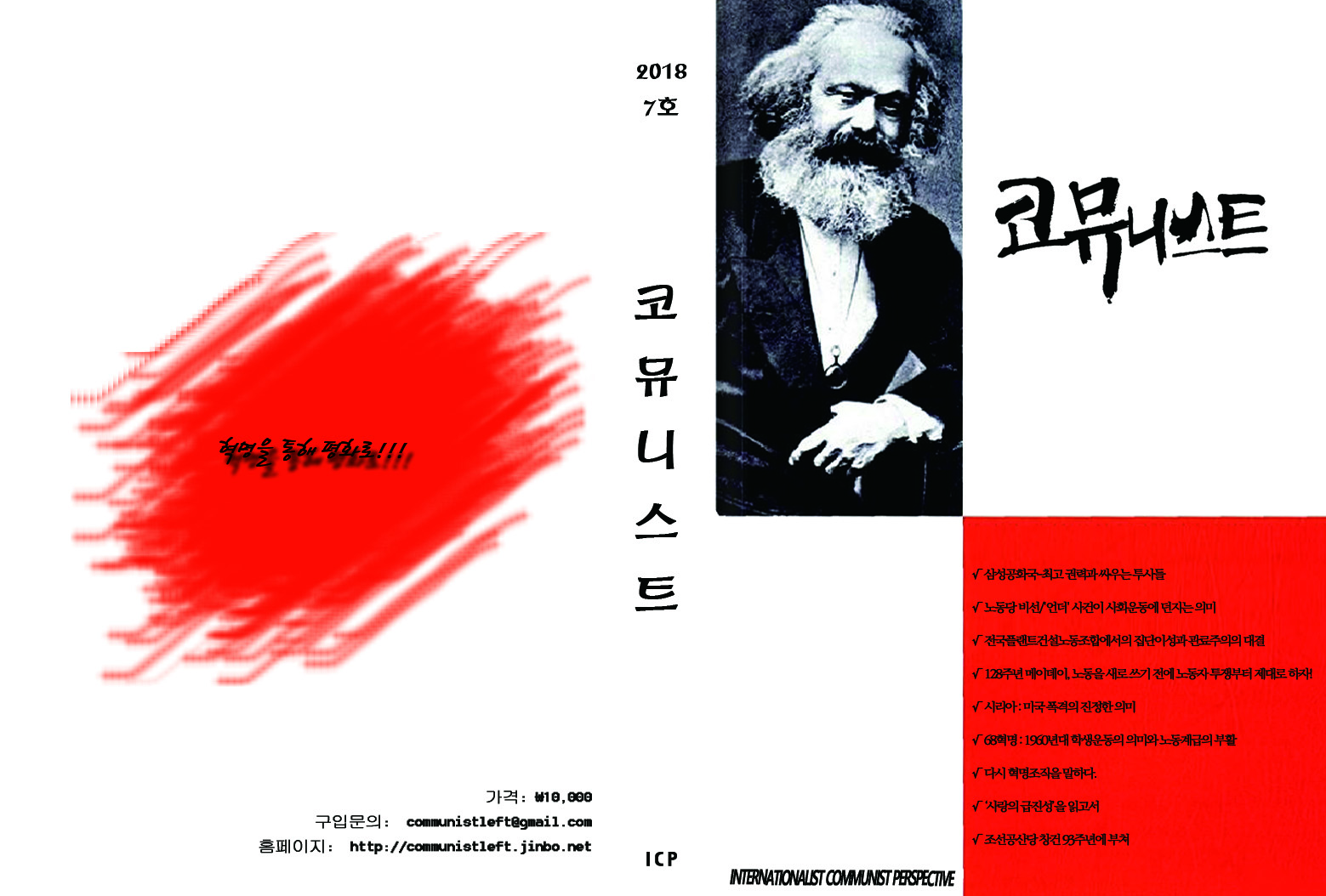
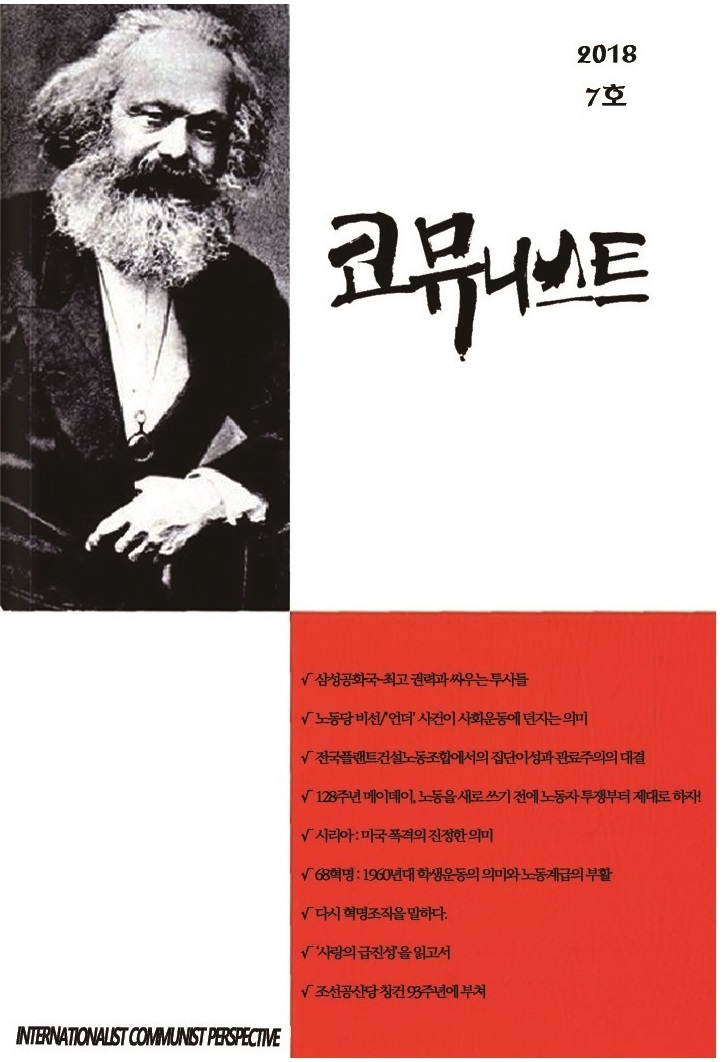
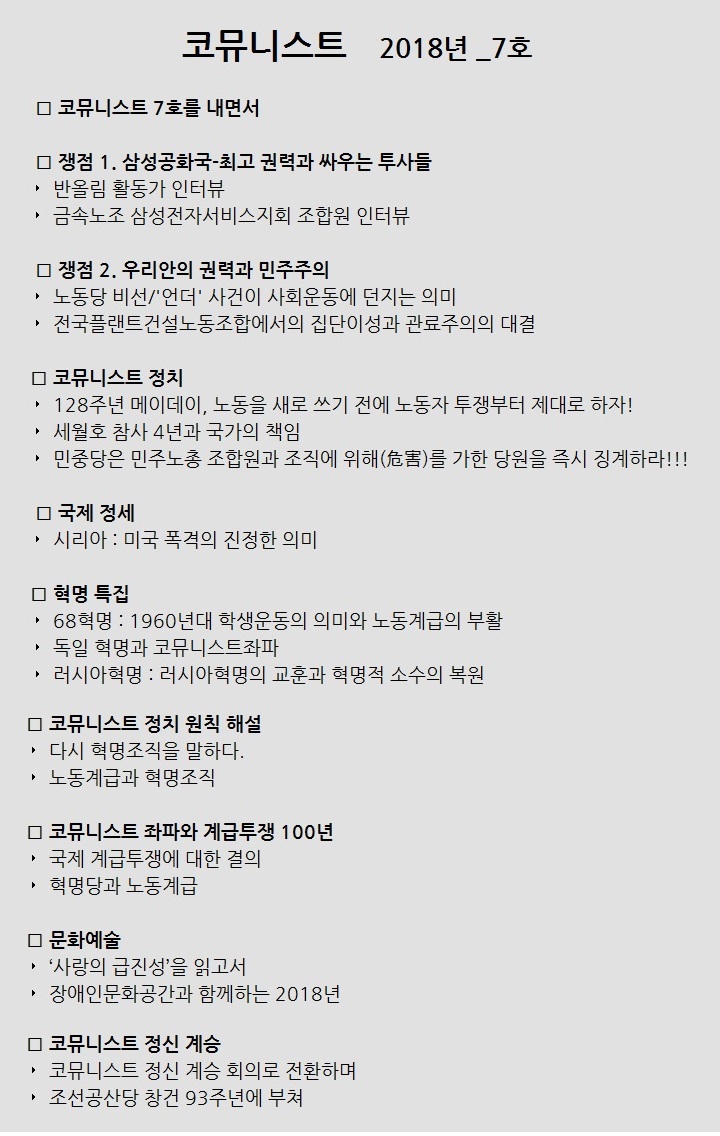

최근 댓글 목록